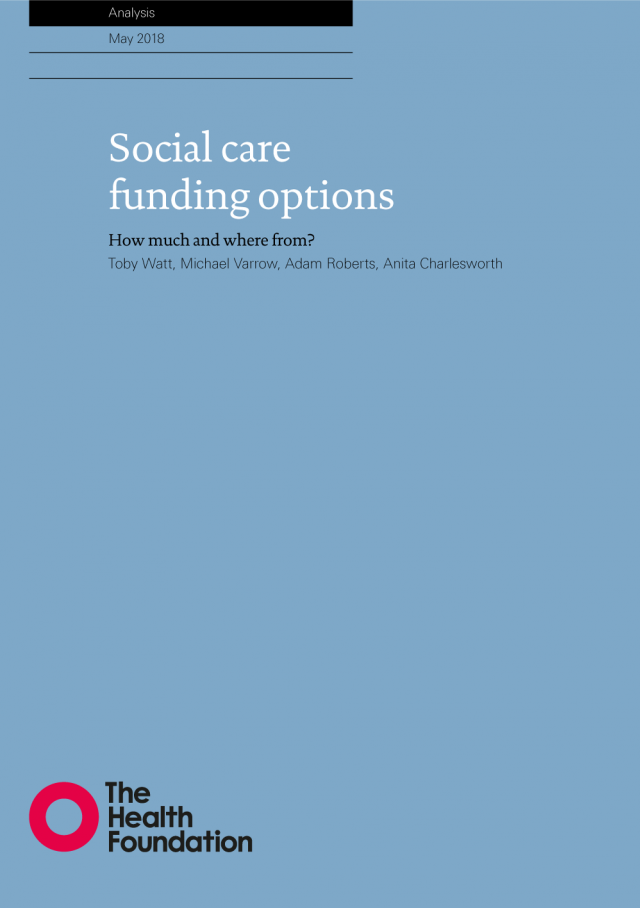Social care funding options How much and where from?
May 2018

Key points
- For the cap and floor model, the total additional cost above current pressures would be around £4.0bn in 2020/21 (taking account of the reduced spending on domiciliary care). This figure would rise to £5.8bn by 2030/31. The overall funding gap would be £5.5bn in 2020/21 and £11.9bn in 2030/31.
- Introducing free personal care would cost an extra £5.5bn in 2020/21 and £7.9bn by 2030/31. This would increase the estimated funding gap to £7bn in 2020/21 and £14bn in 2030/31.
- The additional funding required for social care is large. There are several options to raise the funds in a sustainable way without cuts to other public services. For example, adding 1p to the main rate, higher rate and employers’ National Insurance contributions (NICs) by 2030/31 would raise enough to fund the introduction of the cap and floor model. If at the same time means testing was introduced to winter fuel payments, this could be enough to introduce free personal care.
- It is likely that additional revenue will need to be raised for adult social care services even without a change in the model. The question for government is whether, given that additional tax revenue will be required to protect the range and quality of care services, it would be better to aim for a sufficiently large increase in taxation to be able to provide a better model of care to those facing the burden of the cost.
It is widely accepted in policy and political circles that the current model for public funding of adult social care needs urgent review. Fewer people are receiving publicly funded care despite a growing level of need, and there are serious concerns over the quality and stability of providers of care services.
In this programme of work, the Health Foundation and The King’s Fund have considered the implications of introducing changes to the way social care is funded in England. We have assessed the feasibility, costs and public opinion of alternative models, as set out in our previous working paper.
In this report, we build upon the working paper to model the costs associated with continuing the current system; introducing free personal care as exists in Scotland; or raising the means test for receiving publicly funded care (the ‘floor’) and introducing a cap on total lifetime costs, as proposed in the Conservative Party manifesto for the 2017 general election.
Read the full list of key points
Further reading
Work with us
We look for talented and passionate individuals as everyone at the Health Foundation has an important role to play.
View current vacanciesThe Q community
Q is an initiative connecting people with improvement expertise across the UK.
Find out more

